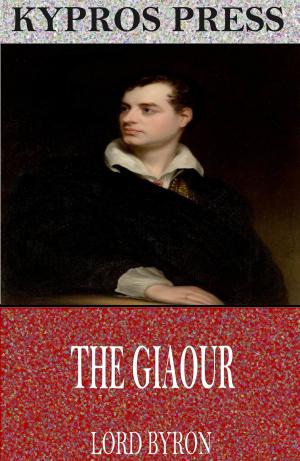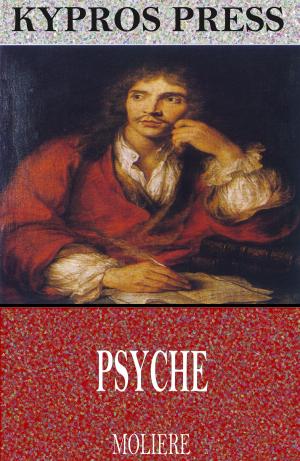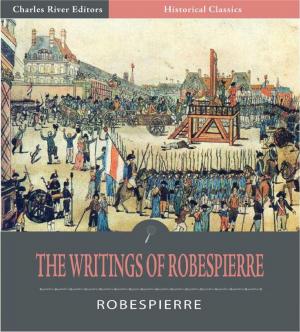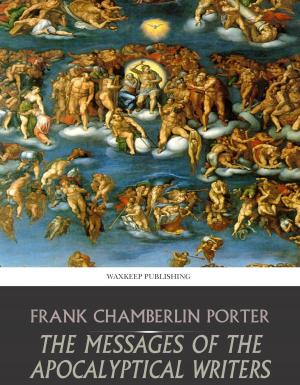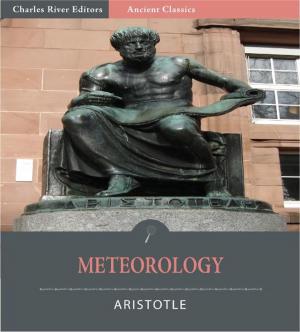The End of the Roman Republic: The Lives and Legacies of Julius Caesar, Cleopatra, Mark Antony, and Augustus
Nonfiction, History, Ancient History, Rome, Biography & Memoir, Historical| Author: | Charles River Editors | ISBN: | 9781475317916 |
| Publisher: | Charles River Editors | Publication: | October 7, 2012 |
| Imprint: | Language: | English |
| Author: | Charles River Editors |
| ISBN: | 9781475317916 |
| Publisher: | Charles River Editors |
| Publication: | October 7, 2012 |
| Imprint: | |
| Language: | English |
*Weaves the famous stories of Caesar, Cleopatra, Antony and Augustus into one gripping narrative. *Includes famous art depicting Caesar, Antony, Cleopatra, Augustus and important people, places, and events in their lives.*Includes a comprehensive discussion of the facts and myths surrounding the deaths of Caesar, Antony and Cleopatra, separating fact from fiction.*Includes a Table of ContentsPossibly the most important man of antiquity, and even all of history, was Julius Caesar. Alexander Hamilton, the famous American patriot, once remarked that the greatest man who ever lived was Julius Caesar. Such a tribute, coming from one of the Founding Fathers of the quintessential modern democracy in reference to a man who destroyed the Roman Republic, is testament to the enduring mark that Caesar left upon the world. The ultimate conqueror, statesman, dictator, visionary, and opportunist, during his time in power Caesar expanded the borders of Rome to almost twice their previous size, revolutionized the infrastructure of the Roman state, and destroyed the Roman Republic for good, leaving a line of emperors in its place. His legacy is so strong that his name has become, in many languages, synonymous with power: the Emperors of Austria and Germany bore the title Kaiser, and the Czars of Russia also owe the etymology of their title to Caesar. His name also crept further eastward out of Europe, even cropping up in Hindi and Urdu, where the term for Emperor is Kaisar. During one of the most turbulent periods in the history of Rome, men like Julius Caesar, Mark Antony, and Octavian participated in two civil wars that would spell the end of the Roman Republic and determine who would become the Roman emperor. In the middle of it all was historys most famous woman, the Egyptian pharaoh Cleopatra (69-30 B.C.), who famously seduced both Caesar and Antony and thereby positioned herself as one of the most influential people in a world of powerful men. Cleopatra was a legendary figure even to contemporary Romans and the ancient world, and she was a controversial figure who was equally reviled and praised through the years, depicted as a benevolent ruler and an evil seductress, sometimes at the same time. Over 2,000 years after her death, everything about Cleopatra continues to fascinate people around the world, from her lineage as a Ptolemaic pharaoh, her physical features, the manner in which she seduced Caesar, her departure during the Battle of Actium, and her famous suicide.Mark Antony (83-50 B.C.) is one of the most unique and best known figures of antiquity, a man whose relationships with some of historys giants ensured his own legacy. A protégé of Julius Caesars, a lover of Cleopatras, a sworn enemy of Ciceros, and a foil for Octavian, Antony has long been remembered for the role he played in others lives more than for his own accomplishments. While Antonys relationships with Romes most famous leaders and historys most famous woman were central components in his lives, the fact that his legacy has been intertwined with them belies the fact that he was a powerful man in his own right. The importance of Gaius Julius Caesar Augustus (or as he was known from birth, Gaius Octavius Octavian Thurinus) to the course of Western history is hard to overstate. His life, his rise to power, his political, social and military achievements, all laid the foundations for the creation of an Empire which would endure for almost five centuries, and whose traditions, laws, architecture and art continue to influence much of Europe and the world today.
*Weaves the famous stories of Caesar, Cleopatra, Antony and Augustus into one gripping narrative. *Includes famous art depicting Caesar, Antony, Cleopatra, Augustus and important people, places, and events in their lives.*Includes a comprehensive discussion of the facts and myths surrounding the deaths of Caesar, Antony and Cleopatra, separating fact from fiction.*Includes a Table of ContentsPossibly the most important man of antiquity, and even all of history, was Julius Caesar. Alexander Hamilton, the famous American patriot, once remarked that the greatest man who ever lived was Julius Caesar. Such a tribute, coming from one of the Founding Fathers of the quintessential modern democracy in reference to a man who destroyed the Roman Republic, is testament to the enduring mark that Caesar left upon the world. The ultimate conqueror, statesman, dictator, visionary, and opportunist, during his time in power Caesar expanded the borders of Rome to almost twice their previous size, revolutionized the infrastructure of the Roman state, and destroyed the Roman Republic for good, leaving a line of emperors in its place. His legacy is so strong that his name has become, in many languages, synonymous with power: the Emperors of Austria and Germany bore the title Kaiser, and the Czars of Russia also owe the etymology of their title to Caesar. His name also crept further eastward out of Europe, even cropping up in Hindi and Urdu, where the term for Emperor is Kaisar. During one of the most turbulent periods in the history of Rome, men like Julius Caesar, Mark Antony, and Octavian participated in two civil wars that would spell the end of the Roman Republic and determine who would become the Roman emperor. In the middle of it all was historys most famous woman, the Egyptian pharaoh Cleopatra (69-30 B.C.), who famously seduced both Caesar and Antony and thereby positioned herself as one of the most influential people in a world of powerful men. Cleopatra was a legendary figure even to contemporary Romans and the ancient world, and she was a controversial figure who was equally reviled and praised through the years, depicted as a benevolent ruler and an evil seductress, sometimes at the same time. Over 2,000 years after her death, everything about Cleopatra continues to fascinate people around the world, from her lineage as a Ptolemaic pharaoh, her physical features, the manner in which she seduced Caesar, her departure during the Battle of Actium, and her famous suicide.Mark Antony (83-50 B.C.) is one of the most unique and best known figures of antiquity, a man whose relationships with some of historys giants ensured his own legacy. A protégé of Julius Caesars, a lover of Cleopatras, a sworn enemy of Ciceros, and a foil for Octavian, Antony has long been remembered for the role he played in others lives more than for his own accomplishments. While Antonys relationships with Romes most famous leaders and historys most famous woman were central components in his lives, the fact that his legacy has been intertwined with them belies the fact that he was a powerful man in his own right. The importance of Gaius Julius Caesar Augustus (or as he was known from birth, Gaius Octavius Octavian Thurinus) to the course of Western history is hard to overstate. His life, his rise to power, his political, social and military achievements, all laid the foundations for the creation of an Empire which would endure for almost five centuries, and whose traditions, laws, architecture and art continue to influence much of Europe and the world today.

